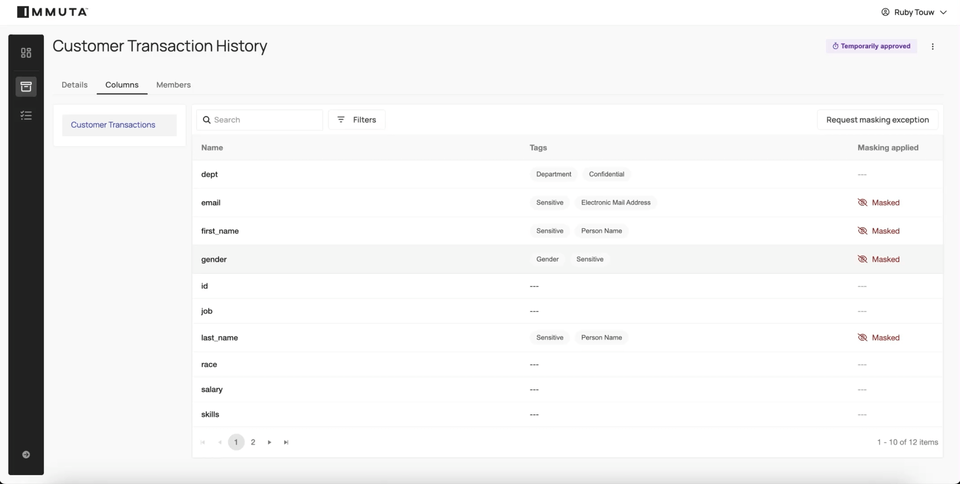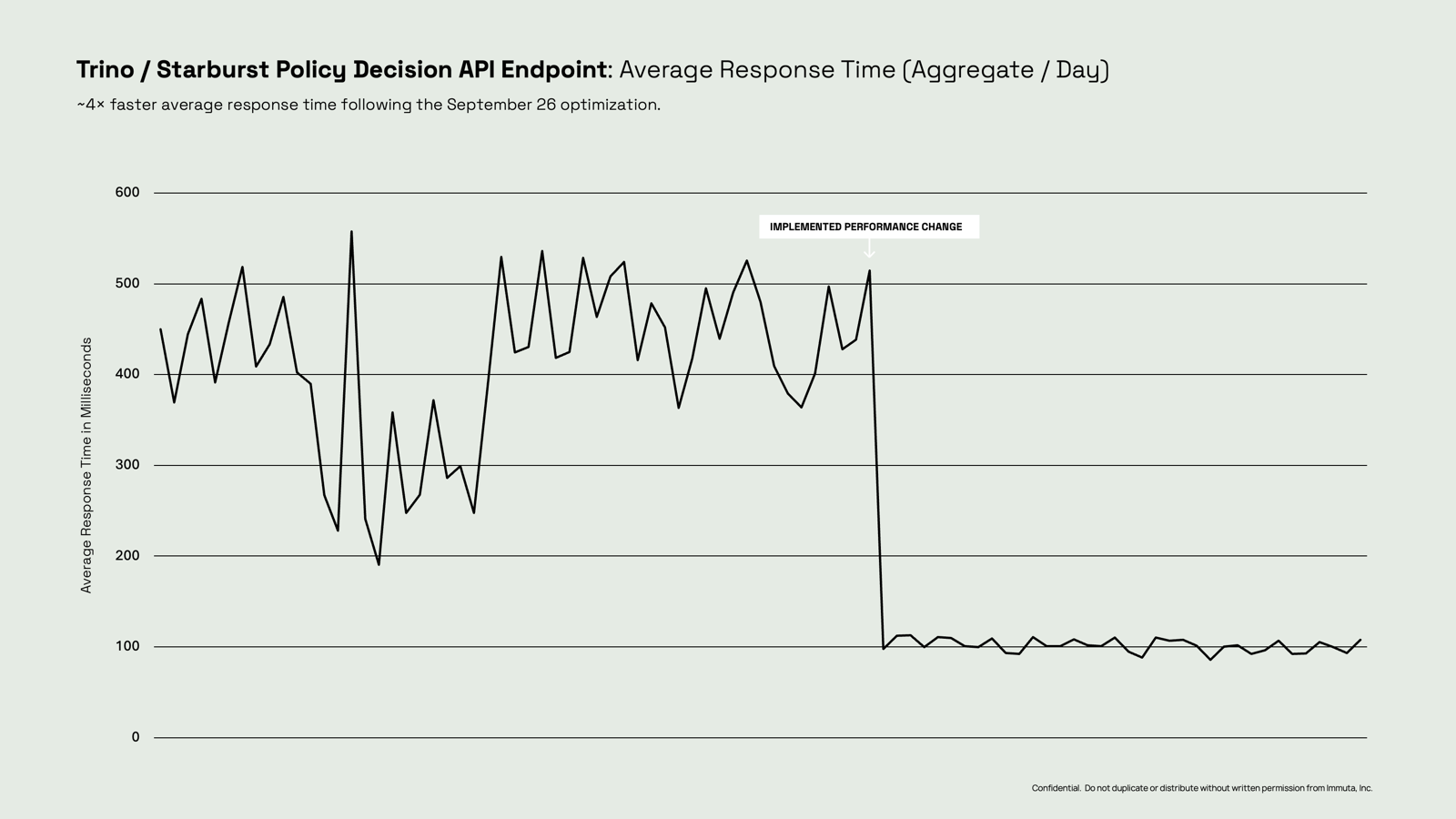
For years, Immuta has been recognized as the leader in fine-grained access control — enforcing the right data policies at the right time, across every platform. But as data ecosystems evolve, so do the demands on governance.
Today, data consumers are no longer just humans running SQL queries. They’re applications, AI agents, and automated systems that need governed, context-aware data — instantly. Delivering that data safely, efficiently, and intelligently is what the next generation of data governance is all about.
That’s why Immuta is transforming from a data access control solution into a data provisioning platform — one that can deliver the right data to any consumer (human or non-human), faster and more securely than ever before.
This month’s updates represent that evolution. Each feature — from dynamic approvals and policy exceptions to performance improvements and automated guardrails — brings us closer to a world where governed data delivery just happens – no bottlenecks, bureaucracy, or broken systems.
1. Policy Exception Workflow: Governing by exception, not restriction
Subscription policies can’t predict the future – one-off data needs are inevitable. For instance, data consumers may need to see a masked column to complete an analysis or validate results. Historically, that meant opening IT tickets, getting approvals, and waiting on role changes – slowing down insights.
Immuta’s new Policy Exception Workflow changes that. Now, a data consumer can simply request unmasking access directly within the data product. The designated approver — whether a data owner, steward, or manager — can review the request instantly, with the assistance of AI if they choose, or make a quick, manual decision. No coding, no IT involvement, and no gatekeeping.

Approvers can grant access or even give temporary access with a single click, and Immuta automatically provisions it.
The result is a simple, auditable, and fast path to governed data — keeping security intact while letting data move at the speed of business.
Read more.
2. Multi-Approver Workflow: Governance without gridlock
Complex access decisions often involve multiple teams — Data Governance, Security, Legal, or Business Units — each with their own sign-off requirements. Until now, that meant serial approvals and long delays.
With the Multi-Approver Workflow, Immuta now supports flexible, parallel approval chains. Multiple stakeholders can review and approve requests simultaneously, and once all approvals are in, access is automatically provisioned.
The system dynamically determines who should be involved in the approval process based on metadata about the requester, the data, and organizational rules — making governance distributed, auditable, and scalable.
This is governance without gridlock — empowering teams to move faster without sacrificing control.
Read more.
3. Guardrail Policies: Built-in safety for distributed provisioning
As organizations decentralize access decisions, more people — from stewards to analysts — can approve data access. That speeds things up but also introduces risk: a single mistaken approval can expose sensitive data.
Guardrail Policies are the automatic safety net to prevent that. They’re non-negotiable eligibility checks that block access unless a user meets specific conditions — even if an approver says “yes.” Guardrails enforce compliance before a single query runs, making decentralized access safe by design.
Examples:
Healthcare and life sciences: In clinical trial settings, only approved research staff in authorized regions can access trial-level patient data, ensuring compliance with privacy and clinical data regulations.
Financial services: Analysts are automatically blocked from viewing M&A deal data to maintain industry compliance and prevent insider-trading risk.
Manufacturing and defense (ITAR/export controls): In the public sector, access to export-controlled or defense-related datasets is restricted to U.S.-authorized personnel only.
Global tech and cloud operations: Offshore engineers can maintain infrastructure, but not view customer or patient data tied to restricted geographies.
Guardrail Policies let organizations decentralize confidently — embedding compliance directly into data provisioning, reducing human error, and giving every approver peace of mind that Immuta keeps data safe by default.
Read more.
4. Faster Trino/Starburst performance: Speed meets scale
Provisioning data also means delivering it fast — especially at query time.
Our latest Trino/Starburst integration update improves performance by 4.26× on average, thanks to a major optimization that eliminates redundant subscription checks.

Previously, every metadata request recalculated a user’s access across all tables. Now, Immuta only evaluates the specific table being queried — reducing CPU load and making catalog browsing, dashboard loading, and ad hoc queries dramatically faster.
For this update, there’s no setup required — the speed boost is already live for all Trino and Starburst customers.
Read more.
The bigger picture: From access control to intelligent data provisioning
These four updates — Policy Exception Workflow, Multi-Approver Workflow, Guardrail Policies, and Trino/Starburst performance improvements — all reflect Immuta’s new direction: from static access control to dynamic, intelligent data provisioning.
We’re building a platform where governed data flows seamlessly to every authorized consumer, whether it’s a person, application, or AI agent — safely, transparently, and instantly.
By embedding governance, performance, and safety into the fabric of data provisioning, Immuta is redefining what it means to deliver trusted data at scale.
Stay tuned as we continue to evolve — from enforcing access to enabling confident, compliant data delivery for everyone.
Learn more.
See all of our most recent data provisioning updates.






